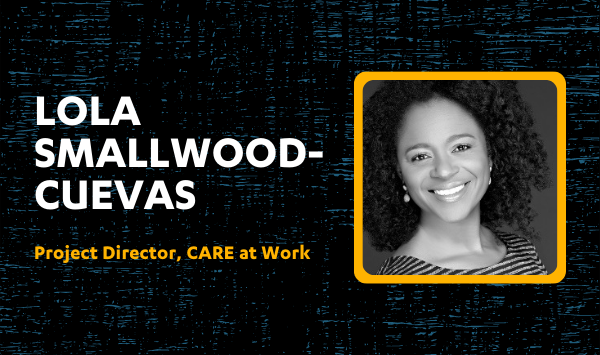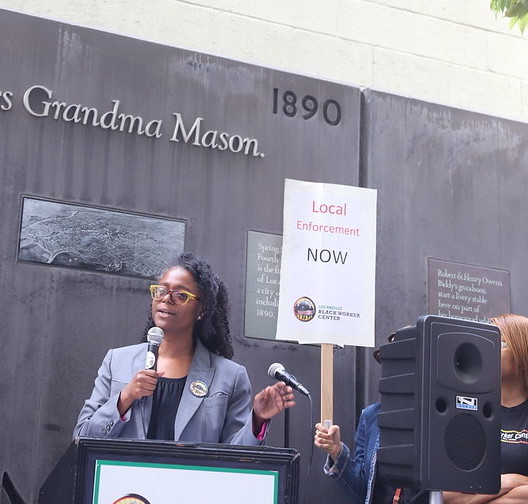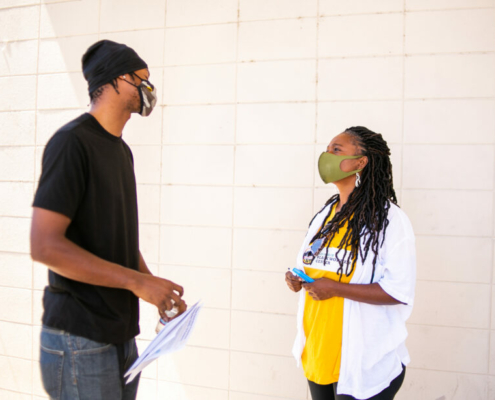Q&A: Lola Smallwood-Cuevas discusses CARE at Work
We talked to CARE at Work’s Project Director about the goals and future of this timely new initiative
This article was originally published on the UCLA IRLE website.
UCLA IRLE | November 29, 2021
The Center for the Advancement of Racial Equity at Work (CARE at Work) launched in 2019 to facilitate innovative solutions that address the needs of Black working-class people and to engage Black workers and economic justice advocates in this process. CARE at Work utilizes a school-to-movement pathway of service, teaching, capacity building and research to illuminate conditions of Black work in Southern California under global racial capitalism and model approaches for change.
We spoke with Labor Center Project Director Lola Smallwood-Cuevas, who is leading CARE at Work, to learn more about this timely endeavor.
Our conversation was edited for length and clarity.
What is the Center for the Advancement of Racial Equity at Work (CARE at Work)?
CARE at Work is a new effort that combines collaborative research, education, and mentorship to bridge multiple disciplines and target community institutions to form a research ecology around the challenges of Black workers under racial capitalism.
CARE at Work waters the roots that weave between academic institutions committed to civic engagement and community justice advocates who protect and defend Black workers, and springboards young, emerging student leaders into growing the field of Black organizing and the Black Worker Movement. This initiative centers Black workers and their communities in creating approaches and advancing innovative solutions that ensure equity around Black life cascades into meaningful Black working conditions that sustain vibrant communities.
We see CARE at Work serving as a regional nexus between UCLA, Black organizers, and economic justice advocates in California. Los Angeles and the Southern California region provide a unique context to establish institutions for Black worker organizing. 64% of all Black Californians live in Southern California. Before the pandemic, job loss and other economic factors displaced Black workers, forcing migration to inland suburban areas that were never designed for Black communities and have very little social and public infrastructure to support their needs. These needs were exacerbated during the pandemic, further destabilizing this vulnerable workforce as Black women experienced the highest job loss of any other group in the state and Black workers overall hold a significant share of low-wage essential jobs exposing it to disproportionate risk. At the same time, this group experienced a higher rate of workplace retaliation when reporting health and safety concerns.





